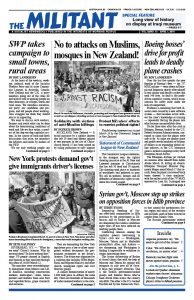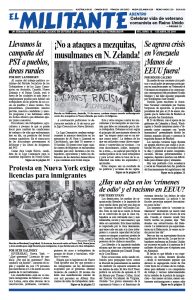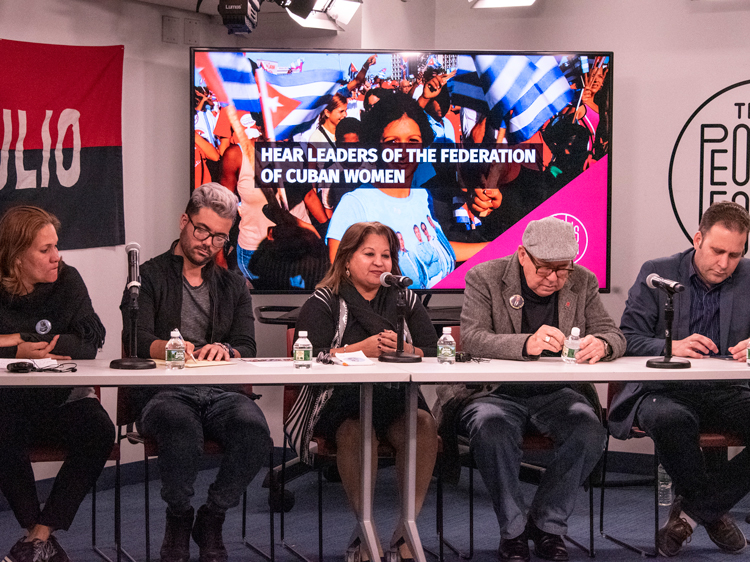NEW YORK — “We are living through a time of many threats because of the aggressiveness of the U.S. government,” Teresa Amarelle, general secretary of the Federation of Cuban Women (FMC), told a meeting of more than 150 people here March 16. The event was sponsored by the New York-New Jersey Cuba Sí! Coalition. Amarelle spoke along with other members of a delegation from Cuba who are participating in International Women’s Month activities at the United Nations.
“Every day they distort the reality of the Cuban people,” she said, referring to the U.S. government’s stepped-up smear campaign against Cuba and the role of Cuban volunteer doctors and others in Venezuela. “They claim that we are responsible for aggression, misery and terrorism directed at the Venezuelan people.”
Amarelle noted the long-standing Cuban policy of not interfering in the internal affairs of other nations. “Revolutions are not exported,” she said. “They are made by the peoples. We made our own revolution in Cuba and we are going to defend it whatever the price. It’s up to the Venezuelan people to defend theirs.”
One of the biggest slanders that U.S. officials have been promoting is that Cuba is in control of Venezuelan intelligence and its military.
There are some 20,000 Cuban internationalist volunteers in Venezuela, most of them heath care workers and teachers as well as some advisers to the Venezuelan military.
“Yes, we send doctors to save lives and not just in Venezuela,” Amarelle said. “We send them to more than 50 countries around the world. We have restored eyesight to a million people.”
The Cuban volunteers, most of whom are women, she said, go to the most isolated places in the countryside and working-class barrios in Caracas to bring health care.
“This can only be done when there is a vocation for justice, when there is solidarity,” she added. “If that is what they accuse us of, then fine, we’re going to keep doing it.”
Amarelle noted that next year is the 60th anniversary of the founding of the Federation of Cuban Women, which just held it’s 10th congress. “Our strength is in our numbers,” she said, noting that “91.4 percent of Cuban women above 14 years old are members.”
Meeting chair Gail Walker, a co-chair of the National Network on Cuba and executive director of IFCO/Pastors for Peace, encouraged audience members to go to Cuba and see the revolution for themselves. She pointed to tables at the side of the room where they could get information and sign up for the upcoming May Day International Volunteer Work Brigade in Solidarity with Cuba, IFCO/Pastors for Peace Caravan and the Venceremos Brigade.


